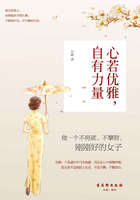A survey of the chief aspects assumed by the work and the payments of the dependent people was absolutely necessary, in order to enable us to understand the descriptions of rural arrangements which form the most instructive part of the so-called extents. But every survey of terms and distinctions (even if it were much more detailed than the one I am able to present), will give only a very imperfect idea of the obligations actually laid on the peasantry. It must needs take up the different species one by one and consider them separately, whereas in reality they were meant to fit together into a whole.
On the other hand it may create a false impression by enumerating in systematic order facts which belonged to different localities and perhaps to different epochs. To keep clear of these dangers we have to consider the deviations of practical arrangements from the rules laid down in the books and the usual combinations of the elements described.
When one reads the careful notices in the cartularies as to the number of days and the particular occasions when work has to be performed for the lord, a simple question is suggested by the minuteness of detail. What happened when this very definite arrangement came into collision with some other equally exacting order? One of the three days of week-work might, for instance, fall on a great feast; or else the weather might be too bad for out-of-doors work. Who was to suffer or to gain by such casualties? The question is not a useless one. The manorial records raise it occasionally, and their ways of settling it are not always the same. We find that in some cases the lord tried to get rid of the inconveniences occasioned by such events, Or at least to throw one part of the burden back on the dependent population; in Barling, for instance, a manor of St. Paul's, London,(82*) of two feasts occurring in one week and even in two consecutive weeks, one profits to the villains and the other to the lord; that is to say, the labourer escapes one day's work altogether. But the general course seems to have been to liberate the peasants from work both on occasion of a festival and if the weather was exceptionally inclement.(83*) Both facts are not without importance: it must be remembered that the number of Church festivals was a very considerable one in those days.
Again, although the stewards were not likely to be very sentimental as to bad weather, the usual test of cold in case of ploughing seems to have been the hardness of the soil -- a certain percentage of free days must have occurred during the winter at least. And what is even more to be considered -- when the men were very strictly kept to their week-work under unfavourable circumstances, the landlord must have gained very little although the working people suffered much. The reader may easily fancy the effects of what must have been a very common occurrence, when the village householders sent out their ploughs on heavy clay in torrents of rain. The system of customary work on certain days was especially clumsy in such respects, and it is worth notice that in harvest-time the landlords rely chiefly on boon-days. These were not irrevocably fixed, and could be shifted according to the state of the weather. Still the week-work was so important an item in the general arrangement of labour-services that the inconveniences described must have acted powerfully in favour of commutation.
Of course, the passage from one system to the other, however desirable for the parties concerned, was not to be effected easily and at once: a considerable amount of capital in the hands of the peasantry was required to make it possible, and another necessary requirement was a sufficient circulation of money.
While these were wanting the people had to abide by the old labour system. The facts we have been discussing give indirect proof that there was not much room for arbitrary changes in this system. Everything seems ruled and settled for ever. It may happen, of course, that notwithstanding the supposed equality between the economic strength of the, different holdings, some tenants are unable to fulfil the duties which their companions perform.(84*) As it was noticed before, the shares could not be made to correspond absolutely to each other, and the distribution of work and payments according to a definite pattern was often only approximate.(85*) Again, the lord had some latitude in selecting one or the other kind of service to be performed by his men.(86*) But, speaking generally, the settlement of duties was a very constant one, and manorial documents testify that every attempt by the lord to dictate a change was met by emphatic protests on the part of the peasantry.(87*) The tenacity of custom may be gathered from the fact that when we chance to possess two sets of extents following each other after a very considerable lapse of time, the renders in kind and the labour-services remain unmodified in the main.(88*) One has to guard especially against the assumption that such expressions as 'to do whatever he is bid' or 'whatever the lord commands' imply a complete servility of the tenant and unrestricted power on the part of the lord to exploit his subordinate according to his pleasure. Such expressions have been used as a test of the degree of subjection of the villains at different epochs; it has been contended, that the earlier our evidence is, the more complete the lord's sway appears to be.(89*) The expressions quoted above may seem at first glance to countenance the idea, but an attentive and extended study of the documents will easily show that, save in exceptional cases, the earlier records are by no means harder in their treatment of the peasantry than the later.














